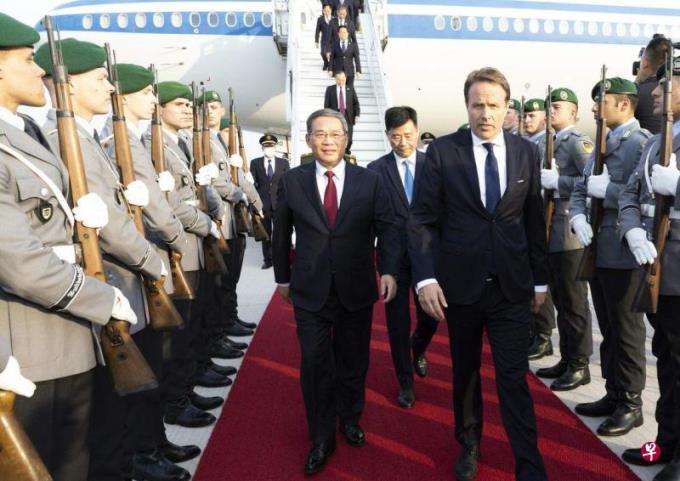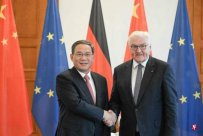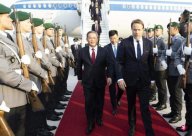
Chinese Prime Minister Li Qiang flew to Berlin, the capital of Germany in the evening of Sunday (June 18) to start his first official visit after he was in charge of the State Council.Essence
Scholars of interviewed scholars evaluated that in the face of the continuous chaos of the German government's policy signals on China, Li Qiang obviously seemed to seek further stable bilateral relations while releasing diplomatic signals that actively strive for Europe.
Li Qiang is invited to visit Germany and France at the invitation of the French government this time.
Li Qiang said after the step of resisted that Germany was the first time he visited the first visit after he became the Prime Minister of the State Council of the Chinese State Council. It described this will be a "journey to inherit friendship and deepen cooperation."
Li Qiang also pointed out that the seventh round of the Sino -German government consultation is the first comprehensive docking after the composition of the two countries.Disization and differences send positive signals to maintain the stability of the international production chain and the world peace and prosperity.
During the German visit, Li Qiang will first meet with German President Steinmore on Monday (19th). After that, he will also hold talks with Shuerz to participate in the seventh round of the China -German government consultation.Li Qiang will also attend the Sino -German Economic and Technological Cooperation Forum and the Sino -German Entrepreneurs Round Table Meeting to discuss with representatives of the German industry and commerce.
Cui Hongjian, director of the European Institute of China International Institute of International Issues, analyzed in an interview with the United Morning Post that Li Qiang chose Germany for the first time after the new government in March this year, which not only reflects China's attention to Germany.The continuation of Chinese officials and German Prime Minister Tsurtz in Beijing further restored Sino -German high -level physical exchanges.
Cui Hongjian pointed out that the Sino -German government's consultation is a high -level, comprehensive and effective dialogue communication mechanism between the two countries. However, offline exchanges are affected by the three -year crown disease.
He also believes that the biggest demand between China and Germany is to stabilize bilateral relations. One of the important signs of stability is to adhere to the previous cooperation and dialogue mechanisms of the two countries.The change is "completely set up another stove."
Tsokutz and the government have continued to have a tough voice to China.German Defense Minister BORIS Pistorius met with Chinese Defense Director Li Shangfu during the Shangri -La dialogue held in Singapore in early June this year, asking China to immediately stop recruiting former German fighter pilots to train the Chinese Air Force pilots.
The German government also released a national security strategy on June 14, which criticized China "to put regional stability and national security under increasing pressure."Based on a new strategy for China.However, at the press conference, Tsugs once again emphasized that Germany did not want to decompose with China, but hoped to "get rid of risks."
Cui Hongjian analyzes how the EU implements the "de -riskization" with China. Li Qiang's visit to Germany and France is expected to communicate with Europe on this issue.Economic recovery injects more kinetic energy.
Cui Hongjian evaluates that the game of various parties in the Tsugs government is currently larger than previous German governments. Members are different from China. "Policy signals for China are more chaotic."Let the Tsugs government "eventually introduce a more comprehensive, balanced, and more pragmatic strategy to China."
He also pointed out that the current Sino -European relations are in a relatively complex and changeable period. "If Sino -German and Sino -French relations can be stable and can advance forward, it will undoubtedly have a positive role in the entire Sino -European relations."



